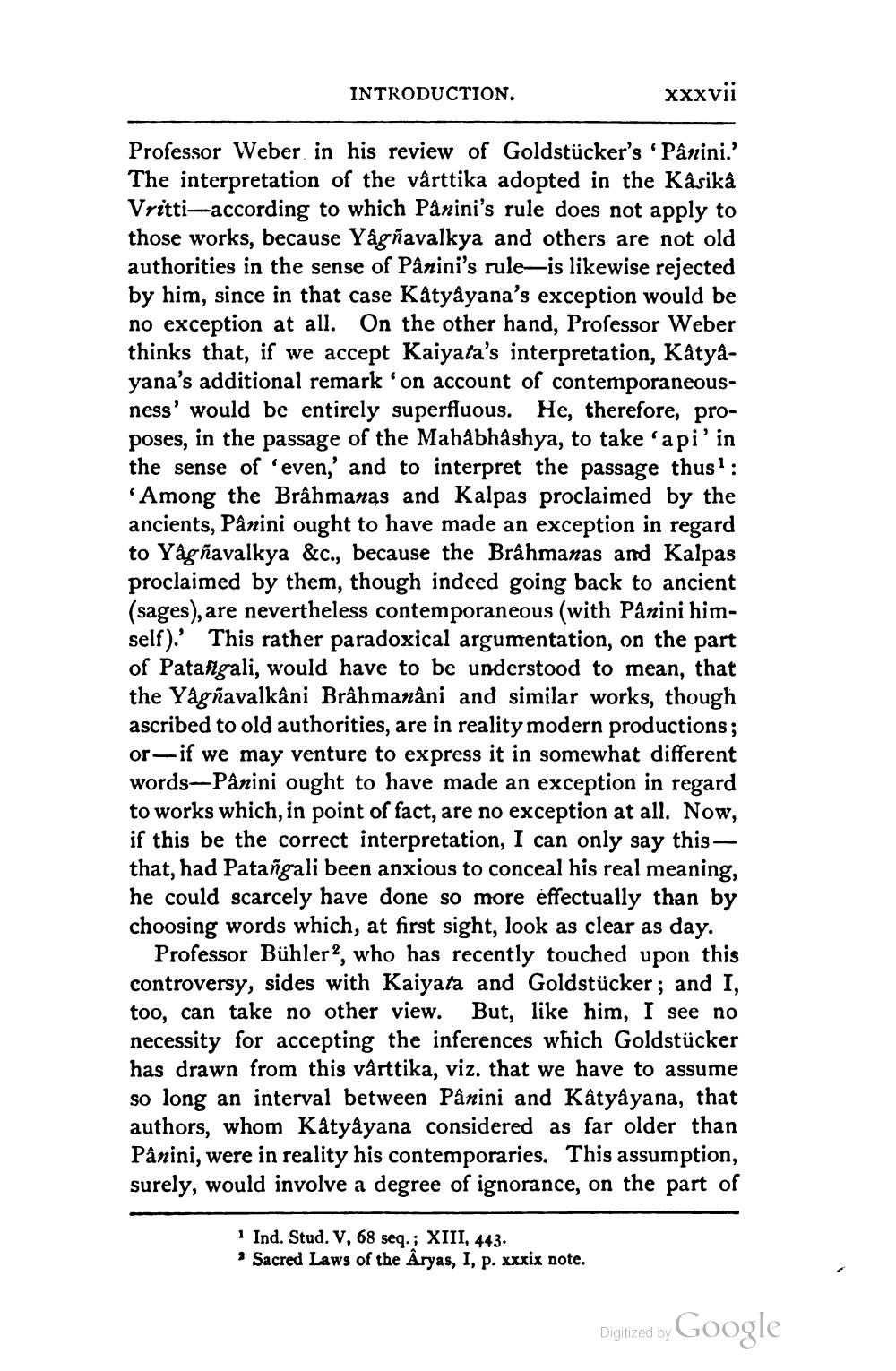________________
INTRODUCTION.
xxxvii
Professor Weber in his review of Goldstücker's Panini.' The interpretation of the vârttika adopted in the Kasika Vritti-according to which Pårini's rule does not apply to those works, because Yågñavalkya and others are not old authorities in the sense of Panini's rule—is likewise rejected by him, since in that case Katyayana's exception would be no exception at all. On the other hand, Professor Weber thinks that, if we accept Kaiyata's interpretation, Katyayana's additional remark on account of contemporaneousness' would be entirely superfluous. He, therefore, proposes, in the passage of the Mahåbhåshya, to take 'api'in the sense of 'even,' and to interpret the passage thus! : 'Among the Brâhmanas and Kalpas proclaimed by the ancients, Pânini ought to have made an exception in regard to Yågñavalkya &c., because the Brâhmanas and Kalpas proclaimed by them, though indeed going back to ancient (sages), are nevertheless contemporaneous (with Panini himself).' This rather paradoxical argumentation, on the part of Patasigali, would have to be understood to mean, that the Yågñavalkâni Brâhmanâni and similar works, though ascribed to old authorities, are in reality modern productions; or - if we may venture to express it in somewhat different words—Pånini ought to have made an exception in regard to works which, in point of fact, are no exception at all. Now, if this be the correct interpretation, I can only say this that, had Patañgali been anxious to conceal his real meaning, he could scarcely have done so more effectually than by choosing words which, at first sight, look as clear as day.
Professor Bühler?, who has recently touched upon this controversy, sides with Kaiyata and Goldstücker; and I, too, can take no other view. But, like him, I see no necessity for accepting the inferences which Goldstücker has drawn from this vârttika, viz. that we have to assume so long an interval between Panini and Katyâyana, that authors, whom Katyayana considered as far older than Panini, were in reality his contemporaries. This assumption, surely, would involve a degree of ignorance, on the part of
Ind. Stud. V, 68 seq.; XIII, 443. * Sacred Laws of the Aryas, I, p. xxxix note.
Digitized by Google
Digitized by




